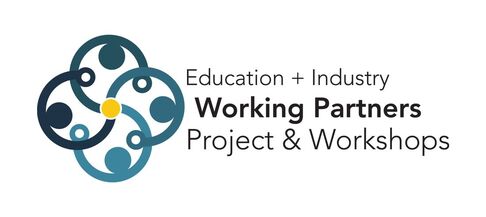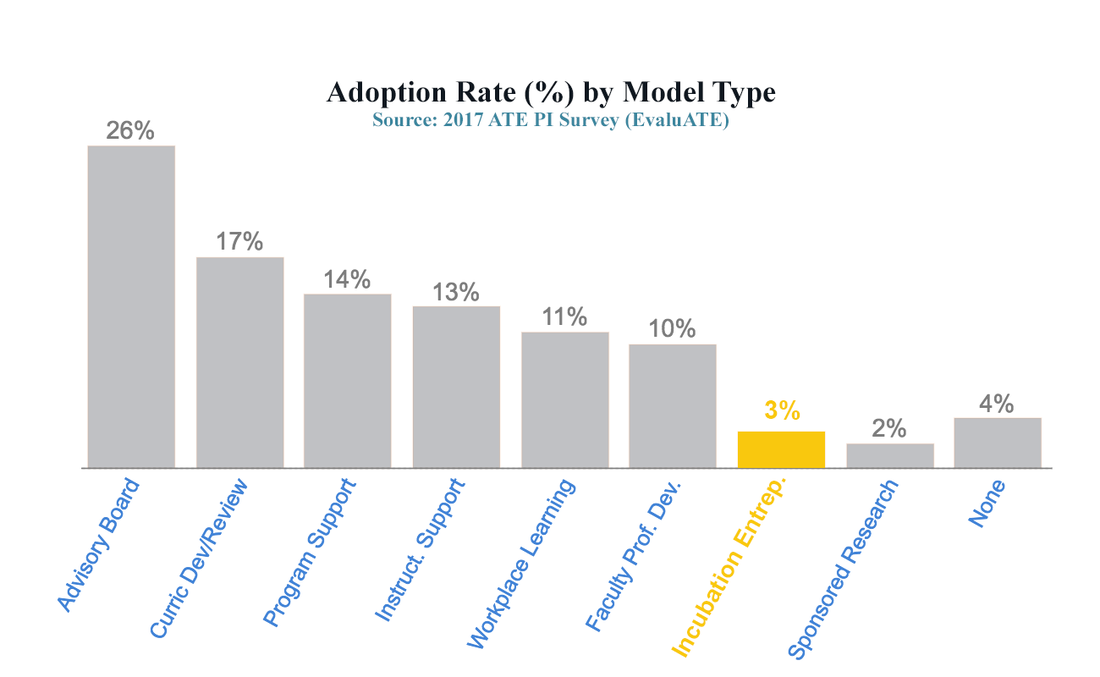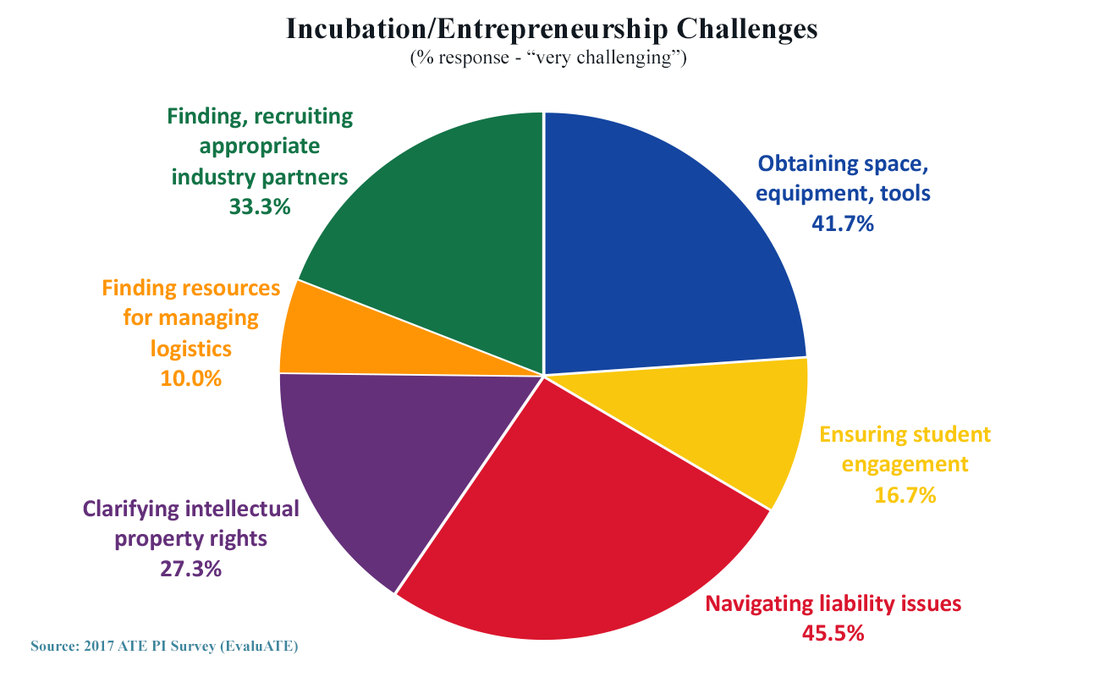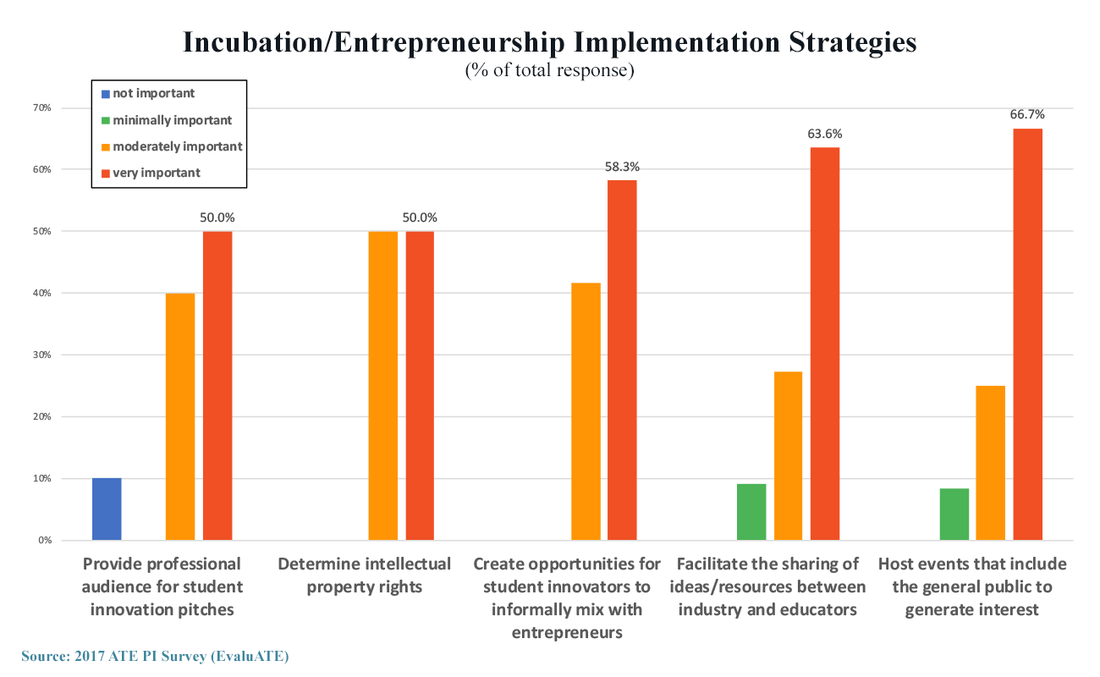Definition: Education and industry partner to foster and grow student or industry economic development opportunities.
Examples: Maker spaces, incubator labs, pitch contests, startup competitions
Examples: Maker spaces, incubator labs, pitch contests, startup competitions
|
Implementation Strategies
Reported Impacts
Reported Challenges
|
Click on image to enlarge
|
Incubation/Entrepreneurship Case Study
The National Resource Center for Materials Education (MatEDU) maintains an 11,000 sq ft materials science lab that initially made available - when not being used for instruction - to regional companies for testing, prototyping and specialized employee training. After this successful venture, they did the same with their advanced manufacturing facility, this time with a focus on startups and entrepreneurs. In both instances, students are provided opportunities to meet innovators, work alongside them in the labs, and learn about the concept to market cycle of innovation through firsthand observation.




